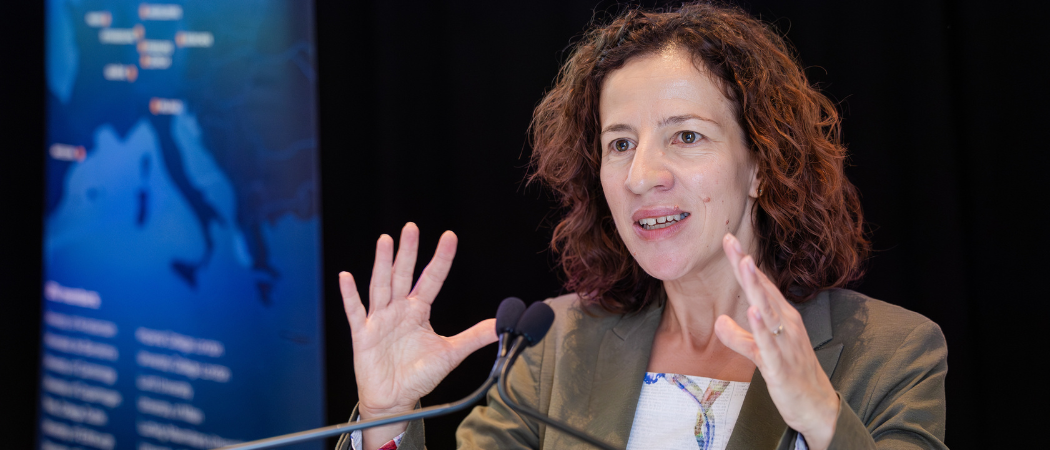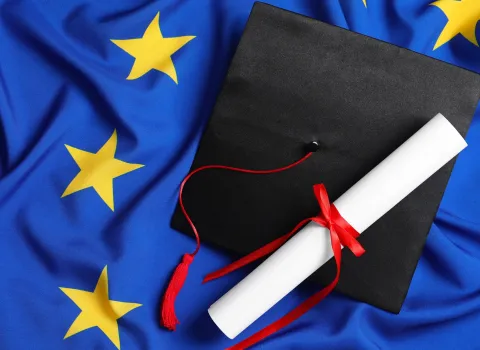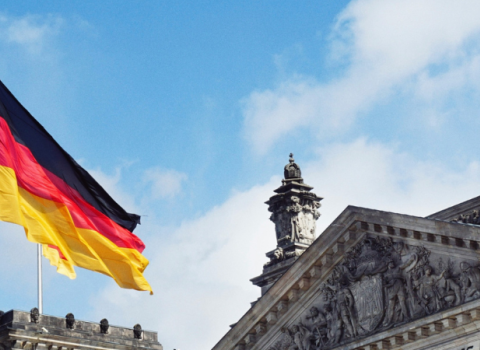But detail is scarce on how science, tech, engineering and maths students might benefit

Roxana Mînzatu, EU commissioner responsible for social rights and skills. Photo credits: Geert Vanden Wijngaert
The European Commission plans to introduce scholarships for students in science, technology, engineering, and mathematics (STEM) under the next Erasmus+ programme starting in 2028, according to Roxana Mînzatu, the commissioner responsible for social rights and skills.
“Europe has important ambitions in terms of economic competitiveness, but we need talented people in every sector [. . .], from clean tech to manufacturing. It is crucial that we invest in these talents,” Mînzatu said in an interview with Science|Business following the announcement.
Beyond the intention to support STEM students in the next edition of Erasmus+, Mînzatu was unable to say more about how the scholarships would work. However, the Commission will put forward a detailed proposal in due course.
“Erasmus STEM scholarships look towards the competitive edge of Europe, the digital, clean [and] other types of competitive sectors,” she said on September 2 at an event organised by the Guild of European Research-Intensive Universities and the League of European Research Universities.
Once the budget is approved, likely by the end of 2027, the Commission will provide detailed plans on STEM scholarship allocations, eligible fields and other practical arrangements, she added.
Their announcement comes amid growing concern over Europe’s shortage of STEM professionals. “It's very important that we address the STEM shortages,” Mînzatu said, adding that the scholarships are also designed to encourage talented students to stay in Europe. “This is a concrete response to the needs of the economy for competitiveness in STEM sectors, and to the needs of our young generation.”
In July, the Commission proposed €41 billion for Erasmus+ under the next long-term EU budget, a 50% increase compared with the current programme. This forms part of a broader €2 trillion budget plan, which is under negotiation with the Council and the European Parliament.
A joint European degree
Mînzatu confirmed that the next iteration of Erasmus+ will continue to support joint and transnational programmes at bachelor, master and doctoral levels, including those leading to a joint European degree.
The European degree is a voluntary framework that would allow educational institutions across member states to develop programmes together, making it easier for students to study in multiple countries, access diverse resources, and ultimately graduate with a single degree that is widely recognised across Europe.
The initiative would reduce bureaucracy and administrative hurdles, enhance student mobility and facilitate professional opportunities across the EU, Mînzatu said.
In March 2024, the Commission presented a blueprint for the creation of a European degree, and in January this year published its conclusions from ten Erasmus+ pilot projects. Last May, EU education ministers agreed to roll out a joint European degree label, set to launch in mid-2026.
Ensuring mutual recognition of qualifications across the EU has been a long and arduous process. The Bologna Process, launched in 1999, established a European Higher Education Area, but many barriers to the delivery of joint programmes remain in national legislation.





 A unique international forum for public research organisations and companies to connect their external engagement with strategic interests around their R&D system.
A unique international forum for public research organisations and companies to connect their external engagement with strategic interests around their R&D system.